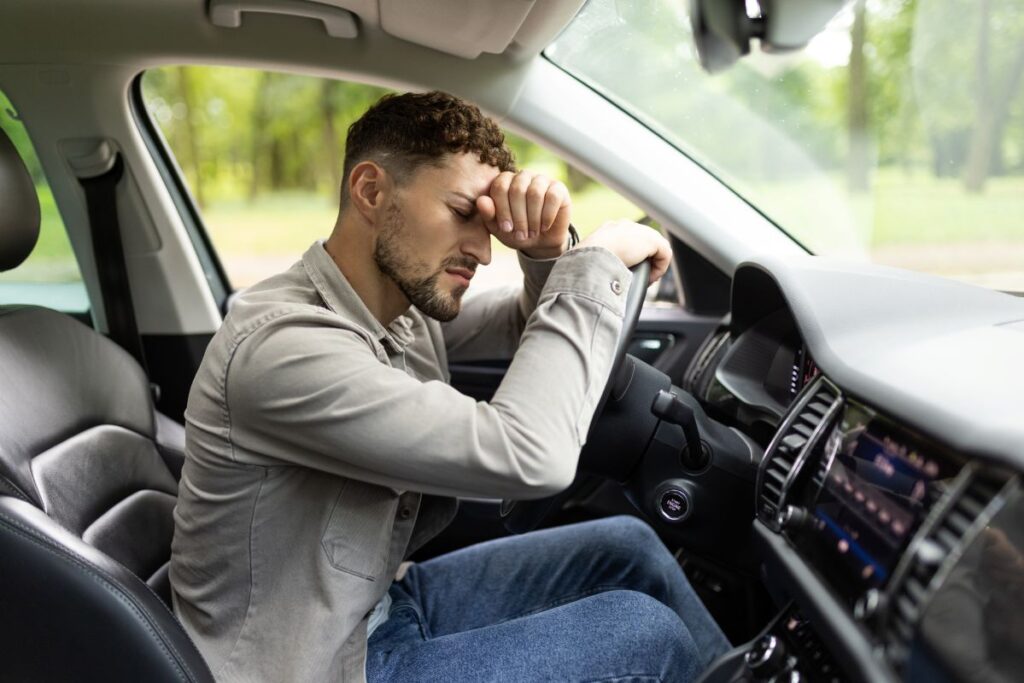
Have you ever felt so tired you could close your eyes for two seconds and immediately fall asleep? While that’s extremely helpful when it’s time to go to bed, it can be very dangerous in situations where being awake is vital, such as when you’re behind the wheel. It’s called drowsy driving, and studies have shown that it can cause mental impairment similar to drunk driving. In fact, research has found that just 24 hours of sleep deprivation affects the body the same way a blood alcohol (BAC) of 0.10% does!
If you’re struggling to get a good night’s sleep despite going to bed and waking at a reasonable hour, you could be suffering from sleep apnea, which may lead to sleep deprivation. Here’s how treating this condition can help get you the rest you deserve so you’re safe and well rested behind the wheel and in your everyday life.
What is Sleep Apnea?
Sleep apnea is a sleep disorder that is typically caused by your airway becoming obstructed during sleep. There are three main types of sleep apnea: obstructive sleep apnea (OSA), central sleep apnea (CSA) and complex sleep apnea, where both OSA and CSA occur simultaneously.
With this condition, the patient struggles to breathe, waking repeatedly throughout the night. They often gasp or choke for air and may have no recollection of these episodes. When they “wake” in the morning, they likely feel tired and lethargic, as if they didn’t get any sleep at all.
Anyone can have sleep apnea; however, it is most common among patients who are overweight, male, and over the age of 50.
Warning Signs of Sleep Apnea
While the symptoms of sleep apnea differ from person to person, they may include some or all of the following:
- Gasping and choking for air during sleep
- Snoring
- Feeling sluggish or tired throughout the day
- Frequent waking throughout the night
- Cognitive impairment
- Depression
Furthermore, sleep apnea can decrease your blood oxygen levels and worsen serious medical conditions like Alzheimer’s disease, certain cancers, high blood pressure, cardiovascular disease, and diabetes.
How Can I Treat Sleep Apnea?
Traditionally, patients with sleep apnea have been prescribed CPAP (continuous positive airway pressure) therapy, but unfortunately many struggle to comply with treatment because they find it uncomfortable and complicated to use.
In recent years, however, oral appliance therapy has soared in popularity. This uses a custom device available from your dentist to gently and comfortably prop your airway open, so you can breathe easily while you sleep, and without the mask and forced air that is synonymous with CPAP.
Remember, when you don’t get a complete night’s rest, it can cause dangerous side effects like sleep deprivation, which in turn can lead to dangerous behaviors like drowsy driving. Don’t put yourself and your fellow commuters at risk: to learn more about sleep apnea, and whether you’re a good candidate for oral appliance therapy, speak to your dentist today.
About Dr. Gramse
Dr. Laura Gramse is a proud graduate of the Tufts University School of Dental Medicine. She has received advanced training in cosmetic and restorative dentistry, dental implants, and sleep dentistry. She is also an active member of the American Dental Association, Massachusetts Dental Society, and the American Board of Dental Sleep Medicine. To schedule an appointment for sleep apnea treatment, please visit our website or call us today at 413-783-6907 in Springfield or 413-283-6521.
